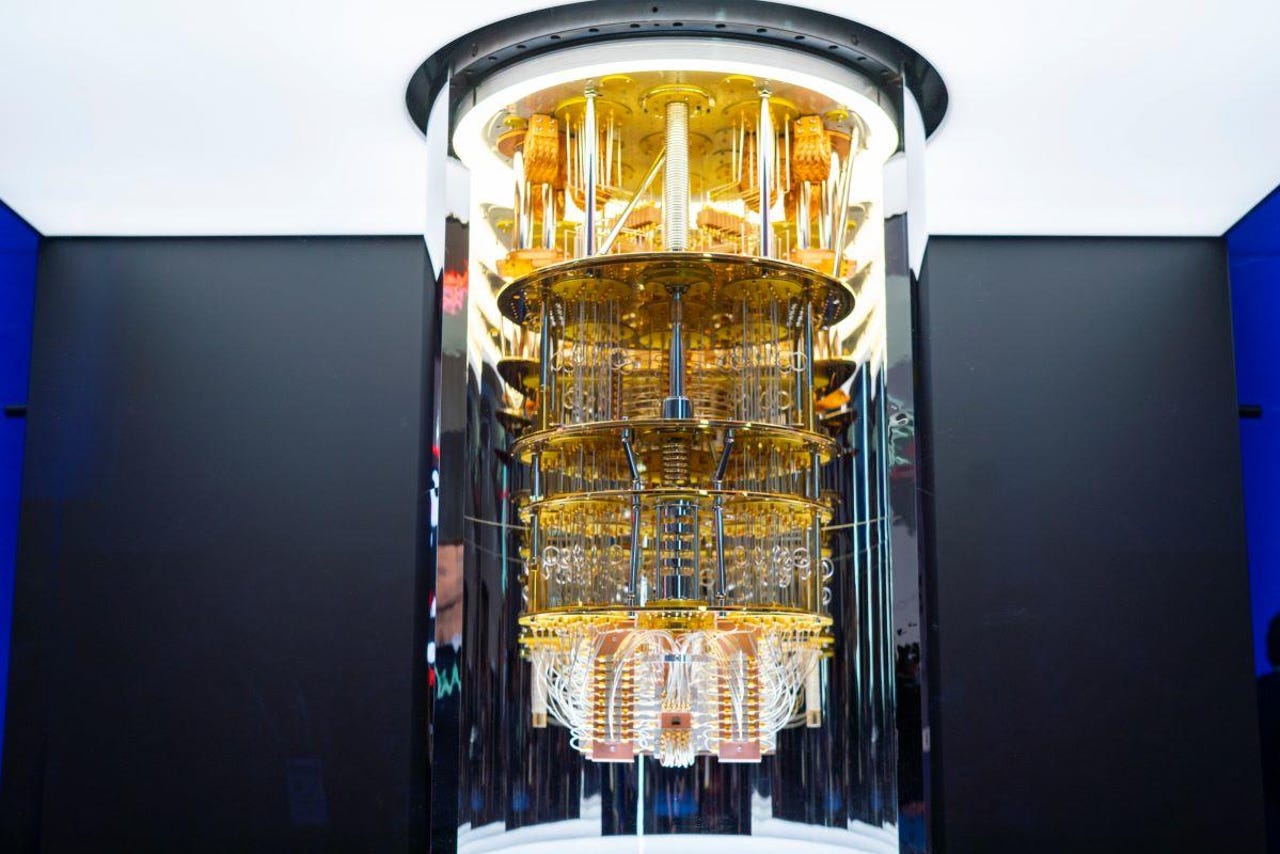IBM researchers demonstrate the advantage that quantum computers have over classical computers


Big Blue's quantum team set out to discover if today's quantum devices could be used to complete a task that cannot be done on a classical system.
IBM researchers have finally proven in a real-world experiment that quantum computers are superior to classical devices – although for now, only at a miniature scale.
Big Blue's quantum team set out to discover if today's quantum devices, despite their limitations, could be used to complete a task that cannot be done on a classical system.
Since quantum computing is still in its infancy, the researchers leveled the playing field between the two methods by designing a microscopic experiment with limited space – that is, limited amount of available memory.
Two limited-space circuits were built, one quantum and one classical, with only one bit or qubit available for computation and result storage. The task programmed into the circuits consisted of finding the majority out of three input bits, returning zero if more than half of the bits are zero, and one if more than half of the bits are one.
Quantum Computing
The restrictions, said the scientists, enabled a fair comparison between the power of classical and quantum space when carrying out a calculation.
"Through our research, we're exploring a very simple question," said IBM's quantum team in a blog post. "How does the computational power differ when a computer has access to classical scratch space versus quantum scratch space?"
Equipped with a single bit for computation and storage, the classical system is not capable of running the algorithm, theorized the scientists. Even when giving the system's computational capabilities a boost by adding what is known as random Boolean gates, the classical computer only succeeded 87.5% of the time.
Quantum devices, on the other hand, fared better: a perfect, noiseless quantum computer could succeed 100% of the time, said the scientists in their theoretical demonstration.
This is because, unlike classical bits that can either represent a 1 or a 0, qubits can take on a combination of various states at once, meaning that they have access to a larger space of values. In other words, quantum space is more valuable than classical space.
The theory, however, is still some distance away from reality. Current quantum computers are still too noisy to achieve the perfect results demonstrated by the scientists in their paper. But when carrying out the experiment in real-life, with circuits calibrated to run the program more efficiently, IBM's team still observed a success rate of 93%, which beats the classical system.
"We show that qubits, even today's noisy qubits, offer more value than bits as a medium of storage during computations," said the scientists.
This means that even today's noisy quantum computers can offer better performance on the problem than the theoretical maximum performance of a classical device, suggesting that as the technology evolves, the performance gap with classical devices will only widen.
Big Blue's quantum team claims that this is a world-first demonstration of quantum advantage, because the theory is backed by a real-life experiment.
To date, research projects are concerned with proving a theoretical quantum advantage that can only be demonstrated when the hardware is mature enough to run large-scale programs, according to the scientists.
From improving car manufacturing supply chains to optimizing the routes of merchant ships around the world's oceans: there is no shortage of ideas when it comes to researching how quantum computing could create business value. But for now, scientists are mostly finding that quantum technologies are comparable to classical systems for small-scale problems, and only theorizing that quantum devices will eventually deliver an advantage as the computers develop.
"Here, for the first time that we are aware of, we report a simultaneous proof and experimental verification of a new kind of quantum advantage," said IBM's researchers.
As quantum hardware improves, these experimental verifications are expected to expand from tests carried out at the level of single bits. IBM recently unveiled a quantum roadmap for the next few years, which includes a 1,121-qubit system to be built by 2023, on track to creating systems supporting more than one million qubits in the longer-term.